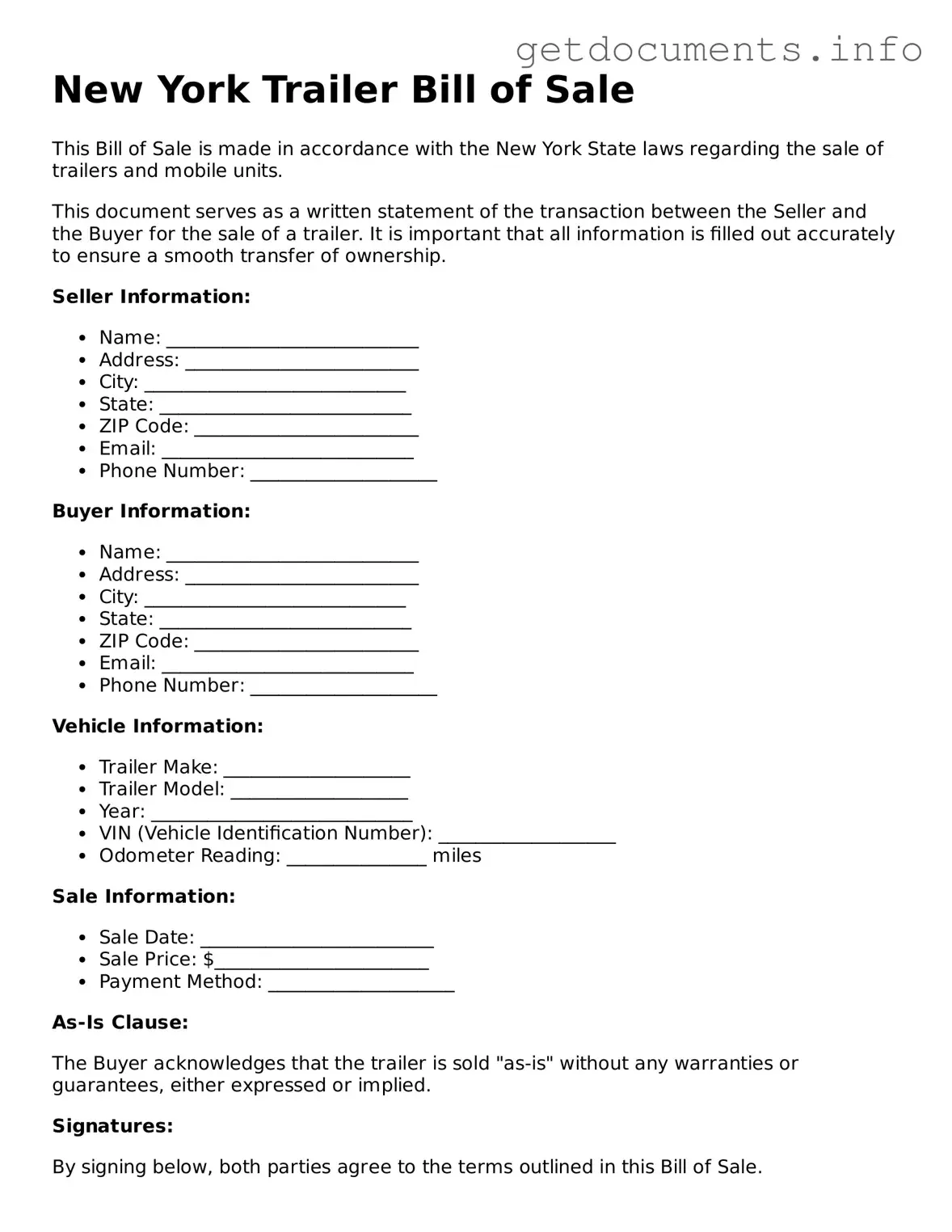Free Trailer Bill of Sale Template for New York
The New York Trailer Bill of Sale form serves as a legal document that records the sale and transfer of ownership of a trailer in the state of New York. This form is essential for both buyers and sellers to ensure a smooth transaction and to protect their rights. Understanding its components and requirements can help facilitate the process of buying or selling a trailer.
To get started on your transaction, fill out the form by clicking the button below.
Access Trailer Bill of Sale Editor

Free Trailer Bill of Sale Template for New York
Access Trailer Bill of Sale Editor
Got places to be? Complete the form fast
Fill out Trailer Bill of Sale online and avoid printing or scanning.
Access Trailer Bill of Sale Editor
or
⇩ PDF File
